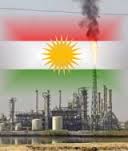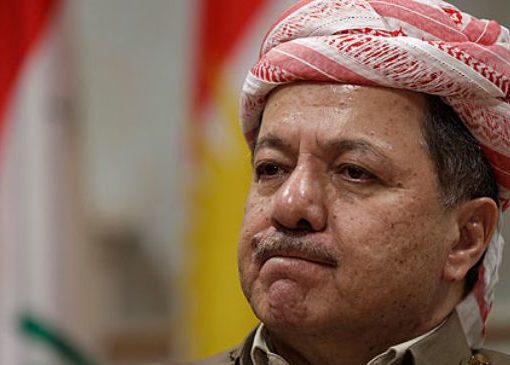This memorandum addresses certain Constitutional interpretation issues relating to Iraqi oil policy and the division of authority between the federal government and the regions and governorates. The Constitution is problematic in many respects including the division of powers between the federal government and the regions and governorates. Nevertheless, we believe that there are strong Constitutional arguments in support of the role of the federal government which we have canvassed below.
The memorandum is based solely on a linguistic analysis of the English version of the Constitution. There may be nuances in the official Arabic version that would affect this analysis. Moreover, there may have been common understandings among the parties that negotiated the text as to its meaning although in the context of a referendum which voted solely on the text itself it is not clear that such common understandings, if any, should have any persuasive force.
Ownership of Oil Resources
Article 111 is unequivocal that all oil and gas are owned by “all the people of Iraq in all regions and governorates.” (Emphasis added.) The language on its face does not admit to the ownership of any particular resource by any particular group or geographical or political region. In effect it gives all citizens of Iraq, wherever resident, an undivided interest in all of the oil and gas resources of the country. Notably it does not vest oil and gas resources in the “state” nor does it allocate the resources to particular regions or governorates. The regions and governorates are addressed solely in the collective form. Moreover it refers to all of the oil and gas resources and does not use the limiting language of “current fields” included in Article 112 First.
Given that oil and gas is the property of the “people” as a whole, any power to alienate the resource by sale or other disposition lies with the “people.” In this regard it is worth noting that the only political entity directly representing all of the people of Iraq is the Council of Representatives. Article 49 First.
Management of Oil Resources Article 112 First provides that the federal government, with the “producing” governorates and regional governments, shall manage oil and gas “extracted from present fields” subject to a revenue distribution formula. “Management” in Article 112 is not defined nor is it subject to any words of limitation. Thus management should be read in the ordinary sense of conducting or supervising all of the business aspects relating to oil and gas extracted from present fields, e.g., production, transport, refining, disposition.
Article 112 Second provides that the federal government, again with the producing regional and governorate governments, shall establish the strategic policies for the development of oil and gas in accordance with certain standards. Article 112 Second does not contain the limiting words “extracted from present fields.”
Thus Article 112 provides a general structure for the oil and gas sector in which strategic policies are set on a unified basis for all of the oil and gas resources of the country and those policies are implemented, in the case of present fields, by the federal government with the producing governorates and regional governments.
The word “extracted” does not connote a limitation on this management authority but rather should be read as defining what oil and gas resources are subject to the management authority of Article 112 First, i.e., oil and gas “extracted from present fields.” Article 112 envisions two functions: the establishment of oil and gas policies and management of the oil and gas resource. It does not create a tri-partite definition in which “extraction” would not be subject to either the strategic policies or the management function.
Authority of Region under Article 112
Article 112 First provides that the “federal government, with the producing governorates and regions” shall undertake the management of the designated resources. Article 112 Second provides that the “federal government, with the producing regional and governorate governments,” shall formulate the necessary strategic policies.
Article 112 First provides at the end of the section for the matters addressed in the section to be regulated by a law.[1] The same provision for regulation by a law is not included in Article 112 Second dealing with the formulation of strategic policies. Perhaps, the drafters did not view “policies” as requiring legislation. In this case, serious questions of transparency and accountability arise in relation to the making and communication of “policy”.
The precise nature of the interaction of the federal government and the regions and governorates under Article 112 is not clear and may have been left deliberately ambiguous. Article 112 by its language and its separation from Article 110 (the exclusive authorities of the federal government) and Article 114 (the shared competencies) is evidently something more than a shared competency but something less than an exclusive competency. Some sort of collaborative or consultative process is required. Two items, however, point to the leadership of the federal government in the process. In both the first and second sections, the federal government is the subject of the sentences and is commanded to act, albeit with the producing regions and governorates. Secondly, in Article 112 First the activity subject too the section is to be regulated by “a law”. The unitary reference to “a law” as elsewhere in the Constitution refers to federal legislation. Thus whatever the form of collaboration between the governmental units, the final action is to be determined by the Federal Council of Representatives.
The leadership of the federal government in Article 112 is further reinforced by Article 110 which sets out those areas where the federal government has “exclusive” authority. Among the exclusive authorities of the federal government are “formulating foreign sovereign economic and trade policy”; and “regulating commercial policy across regional and governorate boundaries in Iraq.” Thus, the shared authority of Section 112 is cabined by the power of the federal government to prescribe and set policies whenever trade or investment crosses national, regional or governorate boundaries or involves trade or investment moving in and out of Iraq. Regional action in violation of such policies would be unconstitutional as it infringes upon areas committed to the exclusive authority of the federal government.
Even if one reads Article 112 Second as it relates to the formulation of strategic policies in the oil and gas sector as being an exception to the exclusive power of the federal government, virtually all ancillary implementing action would be subject to those policies that the federal government has the exclusive authority to establish. Only activity taking place exclusively within a governorate would be exempt, a very limited area indeed.[2]
Limitation on Present Fields
Article 112 First applies to all gas and oil resources “extracted from present fields.” The phrase needs to be broken up into its component parts.
Nothing in the Constitution suggests that “field” should be given anything but its ordinary understanding in the petroleum industry and in Iraq. The Society of Petroleum Engineers defines field as follows:
Field – An area consisting of a single reservoir or multiple reservoirs all grouped on, or related to, the same individual geological structural feature or stratigraphic condition. The field name refers to the surface area, although it may refer to both the surface and the underground productive formations.
In Iraq various areas and structures have historically been identified as fields, e.g., the Rumaila field, the Kirkuk field.
Greater controversy surrounds the qualifier “present.” We understand that “present” is supposed to be some sort of temporal limitation. Assuming this there still remains considerably ambiguity. Some have argued that “present” means “presently in production” or “presently producible” but there is no such qualifier in the text. The difference is not trivial.[3] Nor does the Constitution specify the point at which the “present” status of the fields is to be identified. On the understanding of the phrase as a temporal limitation, the obvious date is that at which the Constitution comes into effect
Regional Power to Nullify Decisions pursuant to Article 112
The Constitution does give the regions and the governorates certain powers to modify or nullify federal legislation, but neither can be reasonably read to apply to Article 112. Article 115 provides:
All powers not stipulated in the exclusive powers of the federal government belong to the authorities of the regions and governorates that are not organized in a region. With regard to other powers shared between the federal government and the regional government, priority shall be given to the law of the regions and governorates not organized in a region in case of dispute.
Since the powers in Article 112 do not appear in the list of exclusive powers of Article 110, the first sentence in Article 115 could be read to give the regions and governorates authority in the areas covered by Article 112. This construction, however, would make Article 112 a nullity and thus cannot stand. The second sentence of Article 115 applies by its terms to the “shared” powers of the the regional government and the federal government. The shared powers are specifically dealt with in Article 114 and this reference should be limited accordingly to the powers set out there.
Article 121 Second also gives the regions certain powers. That Article provides:
In case of a contradiction between regional and national legislation in respect to a matter outside the exclusive authorities of the federal government, the regional power shall have the right to amend the application of the national legislation within that region.
Nevertheless, this article does not apply to the activities of Article 112 as this is not an area where the regional government has authority to adopt legislation, pursuant to articles 114 or 115. On its face, moreover, this section only applies to those areas where the federal and regional governments have shared competency. These areas are set out in Article 114, and it is in these areas where there is conjoint legislative authority that the regional government pursuant to Article 121 has the limited authority to modify the federal legislation operative in its region. To hold otherwise would again make Article 112 a nullity, not only nullifying the federal authority but also the rights of the other producing governorates and regions to participate in the policy formation provided for by Article 112.
Validity of Existing Kurdistan Contracts
Prior to the adoption of the Constitution, the Kurdistan government entered into certain oil exploration or development contracts with foreign companies. The contracts have not been made public and their scope and the fields to which they apply are unknown.
In support of its authority to enter into these contracts Kurdistan representatives point to Article 141 of the Constitution which preserves the validity of certain actions of the region of Kurdistan taken since 1992. That article provides:
Legislation enacted in the region of Kurdistan since 1992 shall remain in force, and decisions issued by the government of the region of Kurdistan, including court decisions and contracts, shall be considered valid unless they are amended or annulled pursuant to the laws of the region of Kurdistan by the competent entity in the region, providing that they do not contradict with the Constitution.
*) Hogan & Hartson LLP &, Professor Cheryl Saunders, University of Melbourne Australia
[1] In the English translation the antecedent to “this” is not specific, but since the section is divided into a compound sentence, with the second sentence providing for regulation by a law, the “this” would on the better reading cover both management and allocation.
[2] How far the federal government’s exclusive power reaches under these provisions is open to further interpretation and development. But apart from Article 112 most oil activity and investment would fall within the exclusive authority of the federal government whether one takes an expansive view and finds that any activity which “affects” inter regional trade or investment is subject to the exclusive authority of the federal government or whether one imposes a more restrictive reading in which the commerce committed to the exclusive authority of the federal government must actually cross a governmental boundary. It is important to note in this regard that the exclusive authority committed to the federal government extends to commercial policy across “governorate boundaries” thus trade within a region but across governorates would be subject to federal policy.
[3] See, e.g., How Much Oil Does Iraq Have?, Iraq Memo #16, May 12, 2003, Gal Luft, Co-Director, Institute for the Analysis of Global Security (IAGS).
“Furthermore, most [Iraqi] fields have not been explored down to the deepest layers of the ground, where plenty of oil can be found. Out of the 74 fields that have been discovered and evaluated, only 15 are actually operating. In addition, there are 526 prospective drilling sites in Iraq today, but just 125 of them have actually been drilled. Of those, 90 have shown potential as oil fields, but only 30 have been even partially developed.”








Comment here